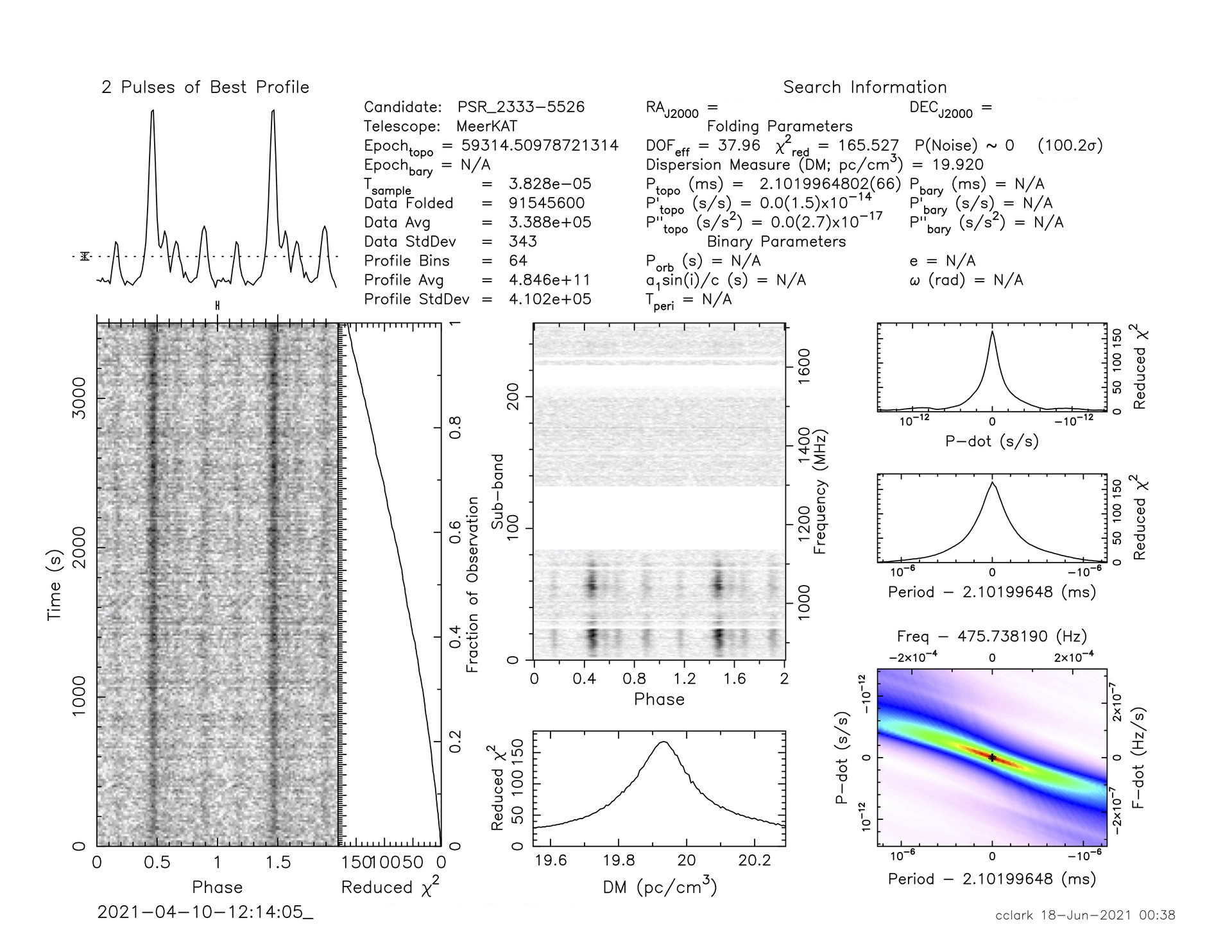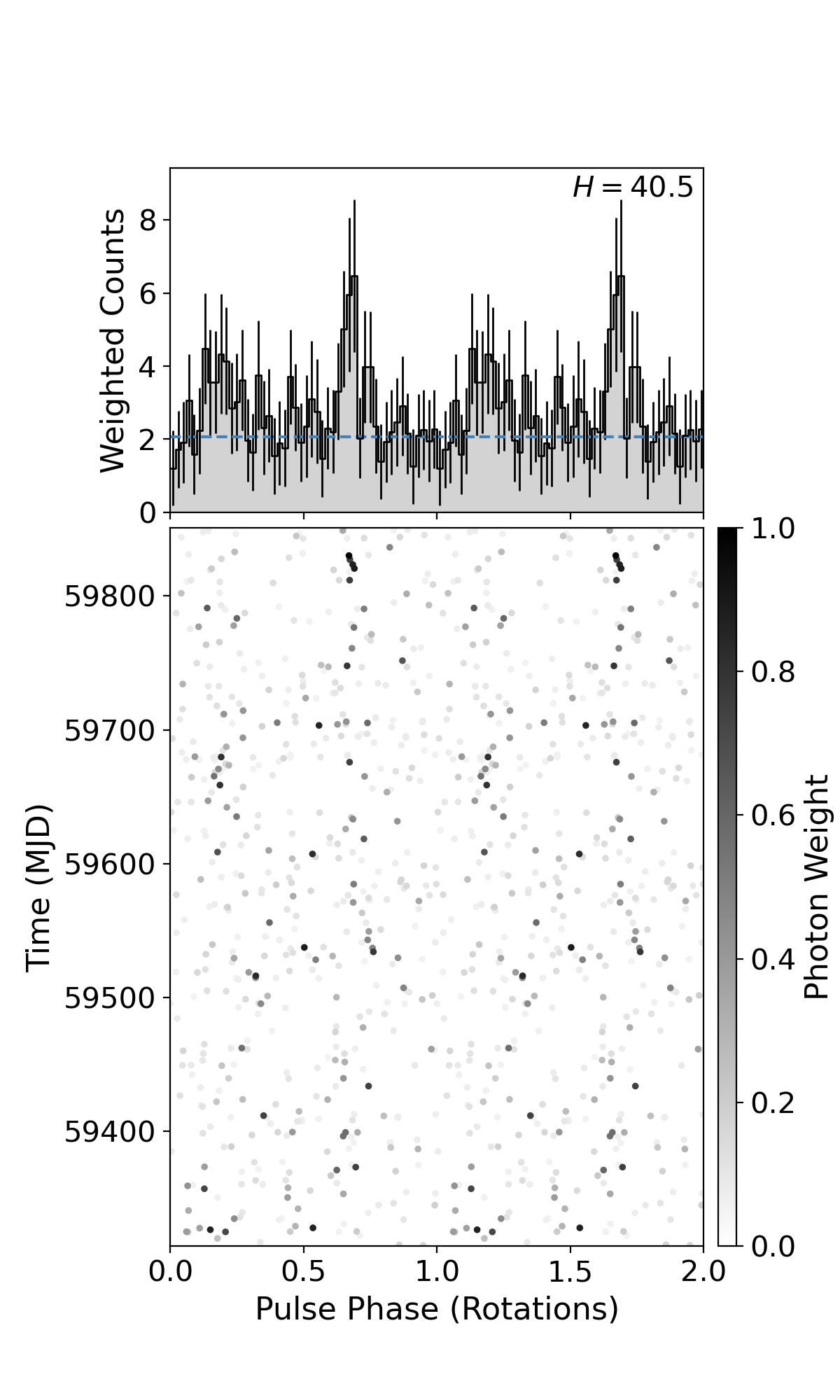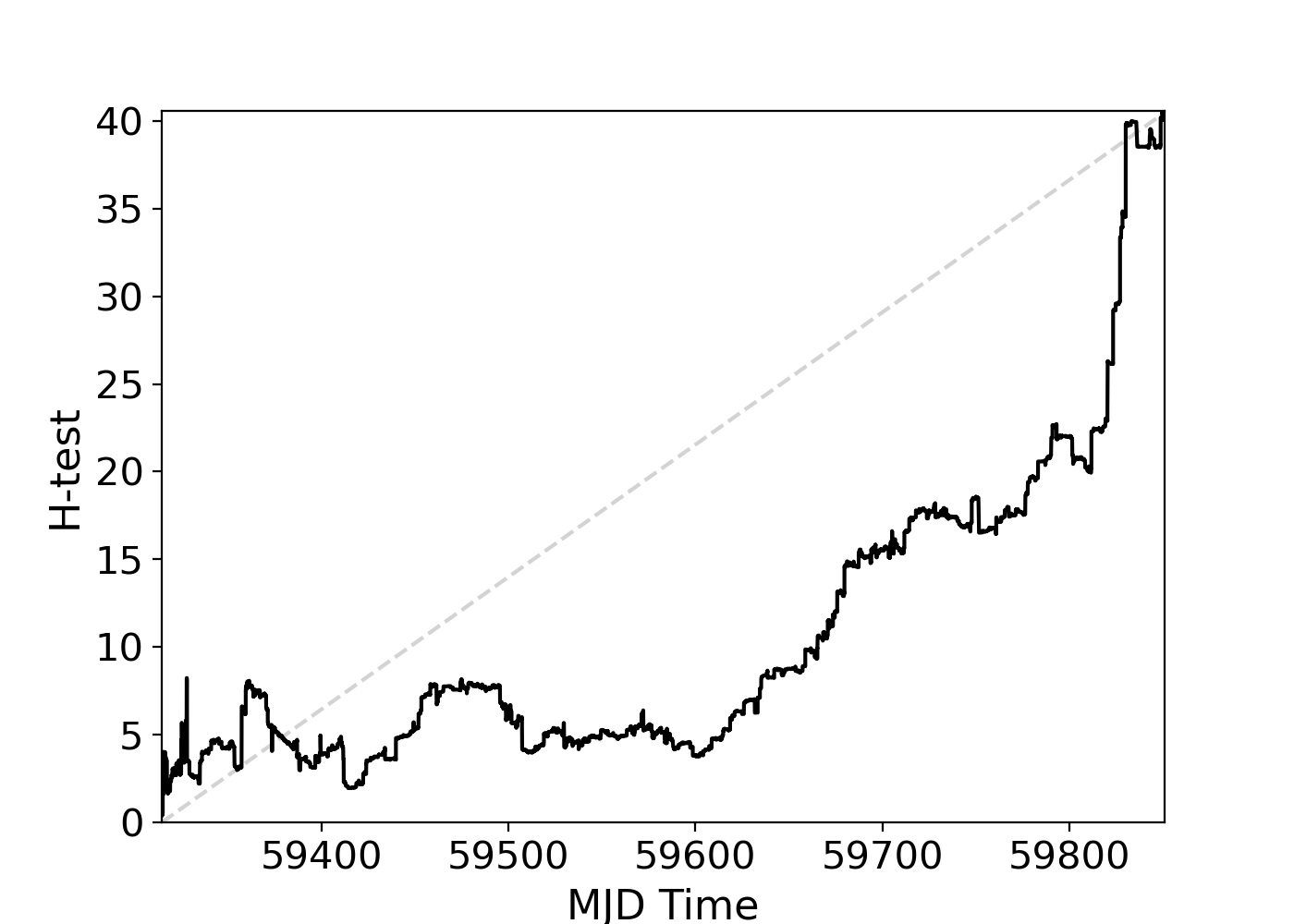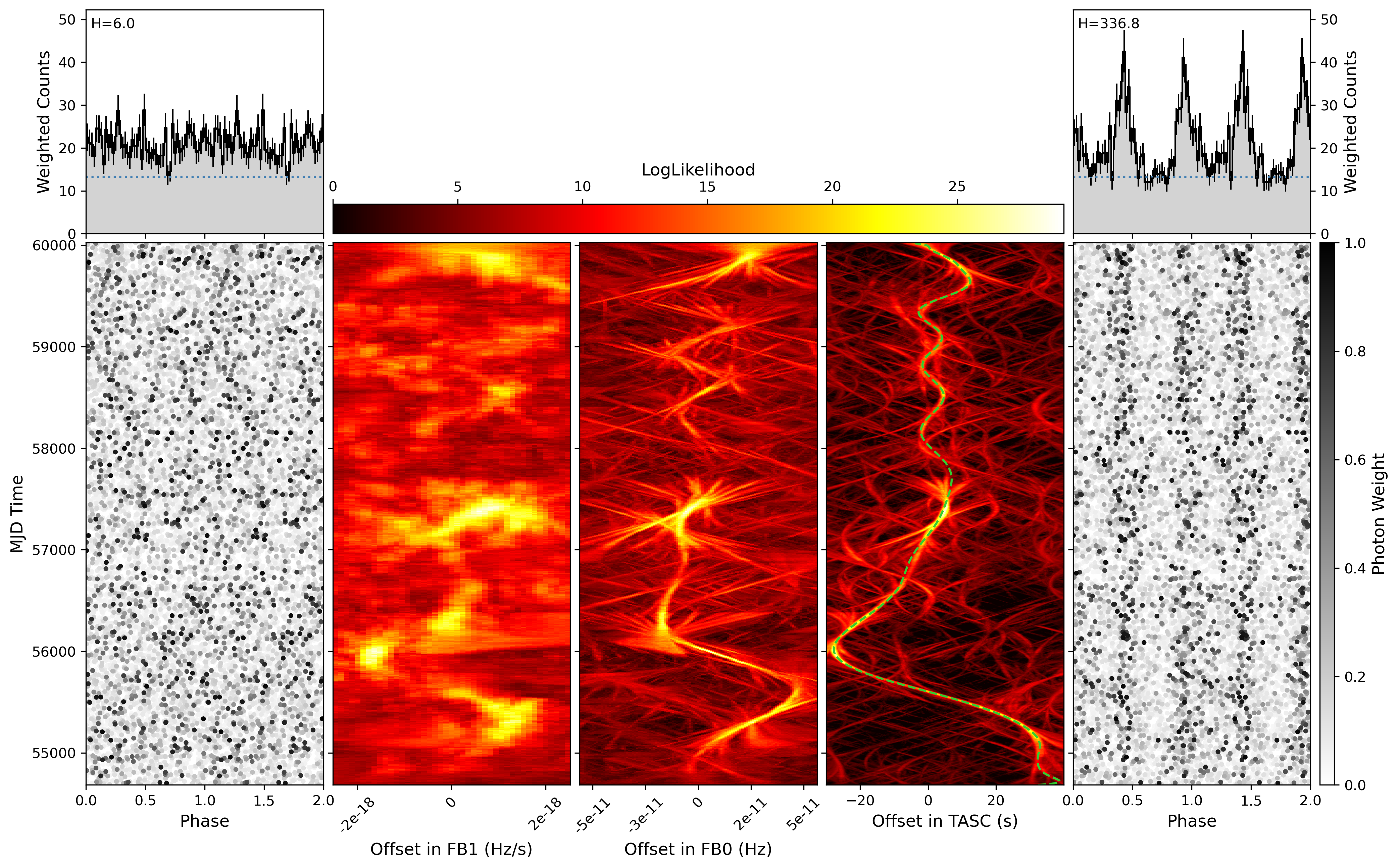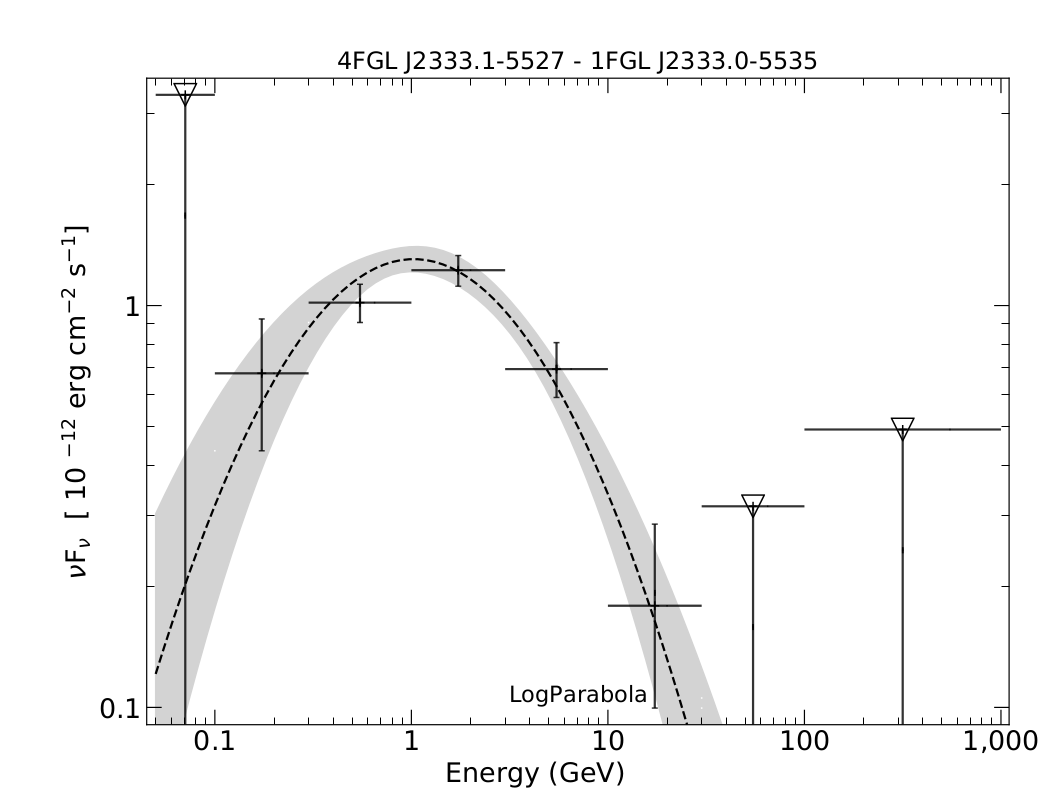General Information
PSR RA DEC P0 P1 F0 F1 Age Dist Edot CODES (see below) J2333-5526 353.32 -55.44 0.0021 7.7e-21 475.6 -1.74e-15 4.4e9 3.3e34 RUP mbrk
Quick Info
This pulsar was discovered by TRAPUM's Fermi Sources working group using MeerKAT, targeting the optical redback candidate identified by Swihart et al. .
Radio Discovery
Gamma-ray follow-up Discovery
A radio timing solution from PKS + MeerKAT timing + Gaia astrometry results in H=40 gamma-ray detection with a single fold:
Gamma-ray timing
Like most redbacks, J2333-5526 exhibits significant orbital period variability that is making it very hard to time! After some tweaking to F0/F1 from the radio ephemeris, a sliding-window search over TASC/PB/FB1 gives us a timing solution requiring 25 orbital frequency derivatives, more than tempo2 can cope with. The ephemeris expresses the orbital phase evolution as an "ORBIFUNC" interpolation.
Left and right plots: Gamma-ray pulse profile and photon phases versus time. Right plot shows orbital timing solution from light-blue curve in TASC-panel.
Middle plots: Sliding window plots.
SED (Spectral Energy Distribution) from the 4FGL-DR3 catalog:
Derived Parameters
Spin period 2.10 ms Observed spin period derivative 7.8e-21 s/s Characteristic age 4.3e9 yr Spin-down luminosity 3.3e+34 erg/s Surface magnetic field 1.3e+08 G DM distance (YMW16) 0.9 kpc DM distance (NE2001) 2.5 kpc Gamma-ray efficiency (YMW16) 0.01 Gamma-ray efficiency (NE2001) 0.08
"4FGL" is the Incremental Fermi Large Area Telescope Fourth Source Catalog Abdollahi, S. et al. 2022, ApJS, 260, 53 doi: 10.3847/1538-4365/ac6751 arXiv: 2201.11184 ADS: 2022ApJS..260...53A
Link to ATNF psrcat
Pulsar History and Characteristics codes:
'G' 'Discovered in Fermi-LAT gamma-ray data.'
'R' 'Discovered in the radio and/or gamma-ray pulsations detected using the radio ephemeris.'
'X' 'Discovered in the X-ray and/or gamma-ray pulsations detected using the X-ray ephemeris.'
'E' 'Pulsar was detected in gamma rays by EGRET/COMPTEL.'
'P' 'Pulsar was discovered by the Pulsar Search Consortium.'
'U' 'Discovered using a Fermi-LAT seed position.'
'r' 'Pulsations detected in the radio band.'
'x' 'Pulsations detected in the X-ray band.'
'm' 'Millisecond pulsar.'
'b' 'Pulsar is in a binary system.'
'w' 'Pulsar is in a black-widow system.'
'k' 'Pulsar is in a redback system.'
'q' 'Gamma pulsar with no radio detection'
